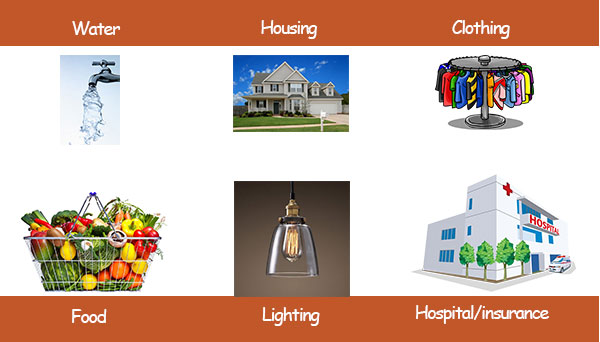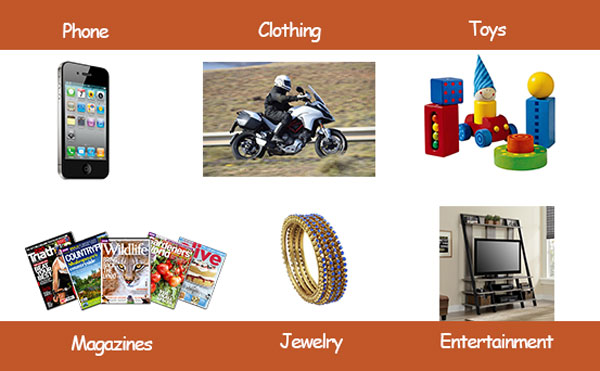| Money |
|---|
| Currency Exchange |
| Budgeting |
| Banking |
| Cashless payments |
| Insurance |
| Assessment Questions |
- Budgeting is the process of creating a financial plan, a list of planned expenses and income. Its is a plan for saving, borrowing and spending.
- Watch this video and learn how to use your money wisely.
- Creating this spending plan will allow you to determine in advance whether you will have enough money to do the things you need to do or would like to do.
- Budgeting is simply balancing your expenses with your income.
- If they don't balance and you spend more than you make, you will have a problem.
- If you don't have enough money to do everything you would like to do, then you can use this planning process to prioritize your spending and focus your money on the things that are most important to you.
- If you don't have enough money to do everything you would like to do, then you can use this planning process to prioritize your spending and focus your money on the things that are most important to you.
The amount of money or its equivalent received during a period of time
Children can make money from doing small chores for money, gifts, allowances, selling things eg fruits from shamba
Expenditure is an outflow of money to another person or group to pay for an item or service. For example paying rent, buying groceries, paying for school tuition, buying a school bag.
A good budget is where INCOME is MORE than EXPENDITURE. We should always put some money aside for future use.
|
Income |
Expenses |
||
|
Salary |
10,000 |
Rent |
8,000 |
|
Selling vegetables |
5,000 |
Groceries |
5,000 |
|
|
|
Transport |
3,000 |
|
|
|
|
|
|
Total Income |
15,000 |
Total Expenses |
16,000 |
|
Income |
Expenses |
||
|
Salary |
10,000 |
Rent |
5,000 |
|
Selling vegetables |
5,000 |
Groceries |
5,000 |
|
|
|
Transport |
3,000 |
|
|
|
|
|
|
Total Income |
15,000 |
Total Expenses |
13,000 |
a) Determine your financial situation in the short term (0-5 years eg buying a bicycle) and in the long term (5-10 years eg paying for university tuition)
b) Plan for today and tomorrow so as to prevent a financial crisis.
c) Prioritising your expenses and making the most of you money.
d) Plan for major financial changes e.g University fees, a new house, birth of a child ·
e) Achieve peace of mind as you will know exactly what your financial situation is.
a) Spend - purchase goods and services to satisfy needs and wants
b) Save - set aside money for future needs and wants
c) Share - donate money to help people, animals and the environment
You can separate your choices as
¨ 40% for spending
¨ 50% for saving
¨ 10% for sharing
Needs are things that we must have in order to survive - things we truly can’t be without. Some needs don’t cost any money at all: we all need air but we don’t have to pay for it. Likewise, we all need exercise to be healthy and we can run around outside for free. Examples;
Clothing, Medical care, Nutritious food, Shelter, Transportation, Basic utilities (electricity, water)
When budgeting these are placed uder short term goals,

These are things that we would like to have, but that are not necessary for survival. Examples include;
Cell phones, Electronics, Jewelry, Magazines, Movies, Television, Toys

This is income which is not spent. Depositing (putting) your notes and coins in a home bank is a commonly used saving strategy by most students.
Whilst you all have Home Banks there are problems associated with this; your money will be lost in the event of a fire or theft. The solution to this is depositing your money in a real Bank. You will learn the functions of a Bank in the following chapters.
Savings help you to meet your long term expenses eg pay for unversity tuition.
Make a list of all income (Eg Mr Peter makes 30,000 a month)
First set aside money to save for future (15,000).
Make a list of Needs
Total Needs = 12,000
Make a list of wants
Total wants - 2,000
He has 1,000 left which he can use to save for future needs or budget to buy something else.